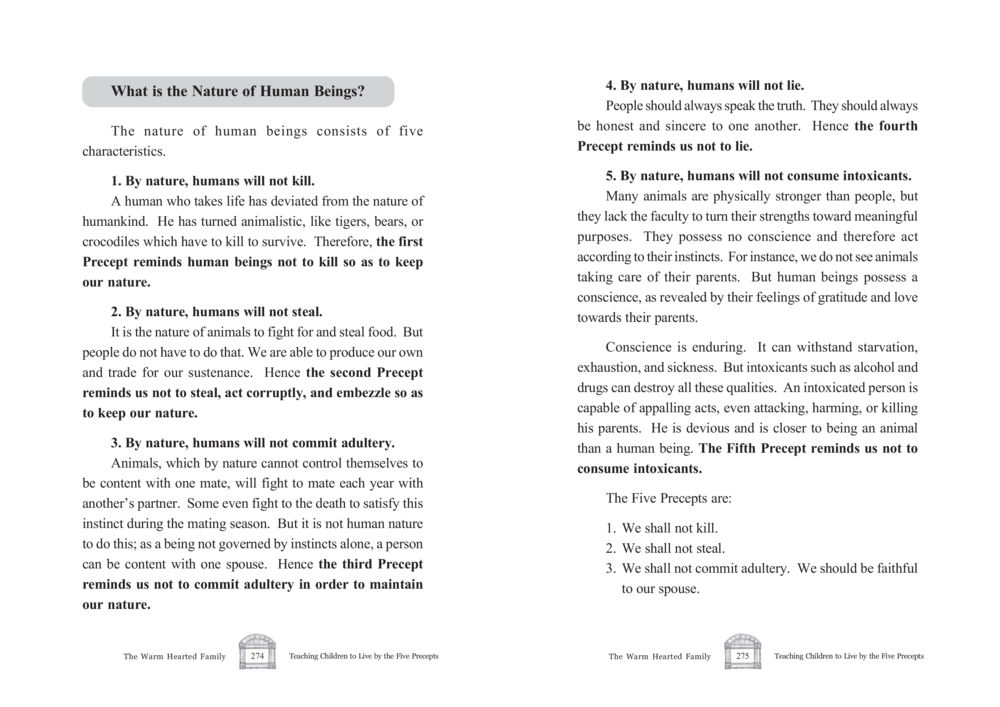The Nature of Human Beings and the Five Precepts : หน้า 138/207
The Warm Hearted Family : หน้า 138/207 Explore the inherent characteristics of human nature and the importance of adhering to the Five Precepts for a harmonious life.
0 ครั้ง

สรุปเนื้อหา
The nature of human beings encompasses five fundamental characteristics that differentiate us from animals. First, humans, by nature, refrain from killing, which is vital to our humane identity. Second, we do not steal; humans can produce and trade for sustenance, unlike animals that fight for food. The third characteristic emphasizes fidelity, as humans are capable of being content with one mate rather than succumbing to animalistic instincts. Fourth, honesty is a human trait; we are encouraged to speak the truth and remain sincere. Finally, the fifth aspect highlights the importance of avoiding intoxicants that can diminish our conscience and lead us to act against our nature. The Five Precepts serve as a guideline to uphold these virtues: we shall not kill, steal, commit adultery, lie, or consume intoxicants. By following these principles, we maintain our humanity and live harmoniously.
หัวข้อประเด็น
-Human Nature
-The Five Precepts
-Characteristics of Humans
-Importance of Ethics
-Moral Guidelines
ข้อความต้นฉบับในหน้า
หน้าหนังสือทั้งหมด















































































































































































































